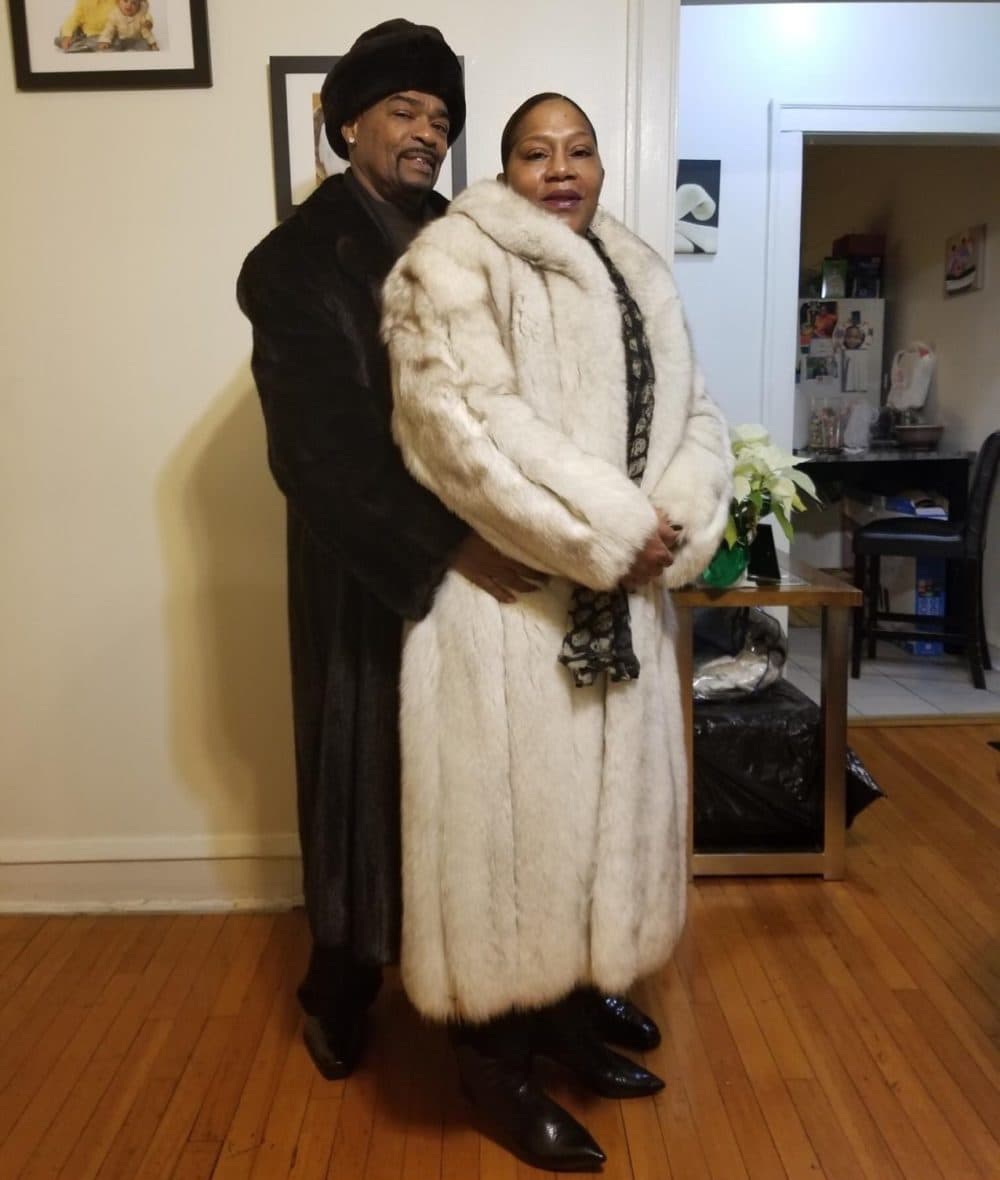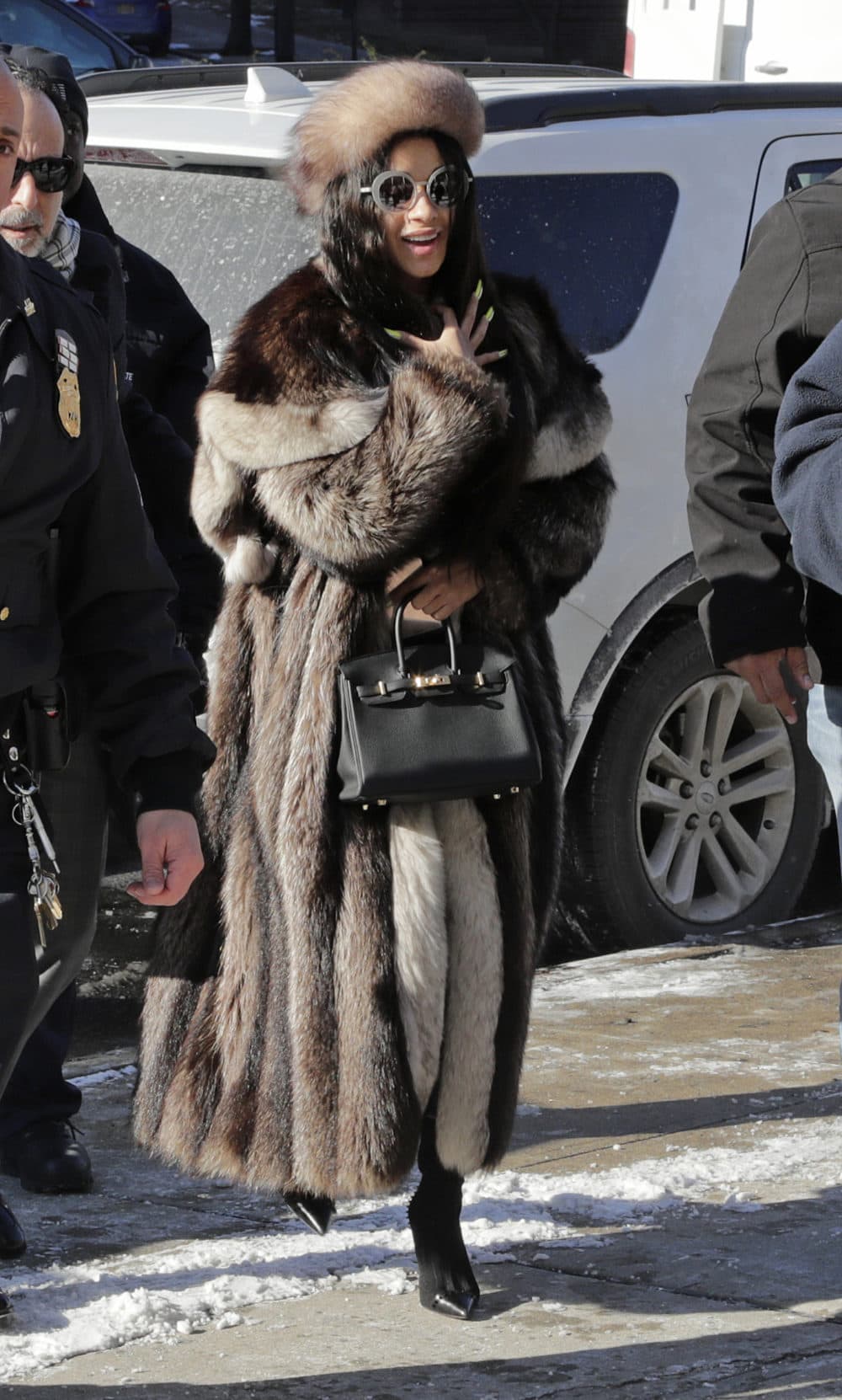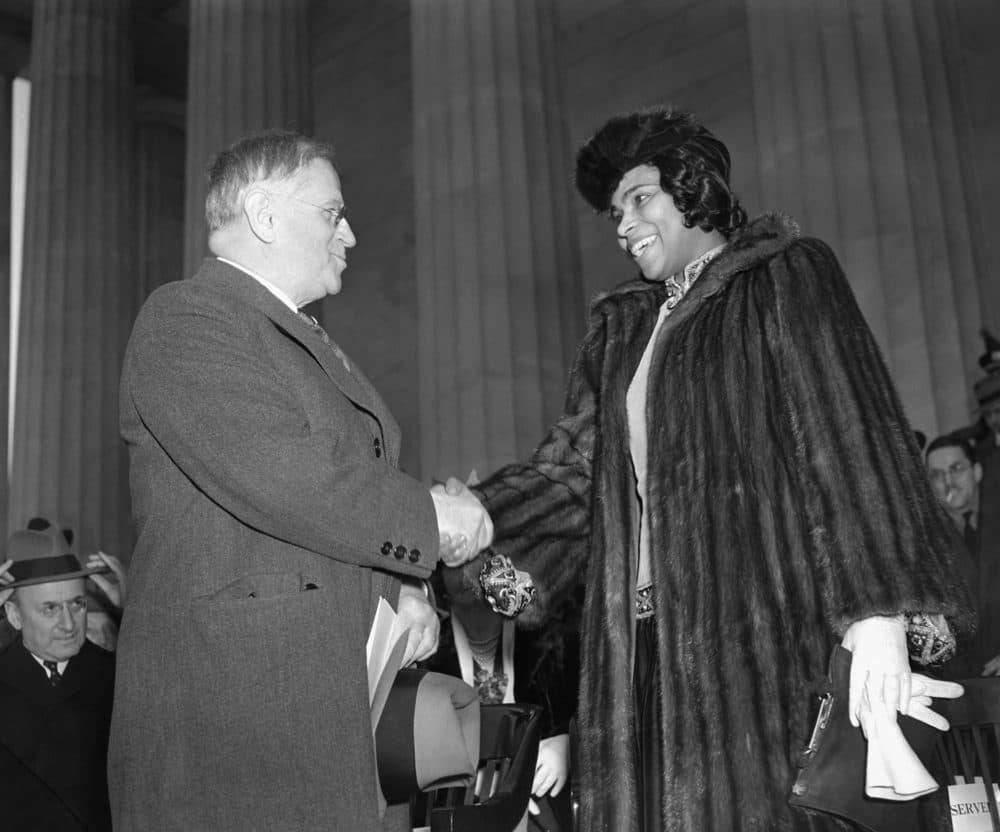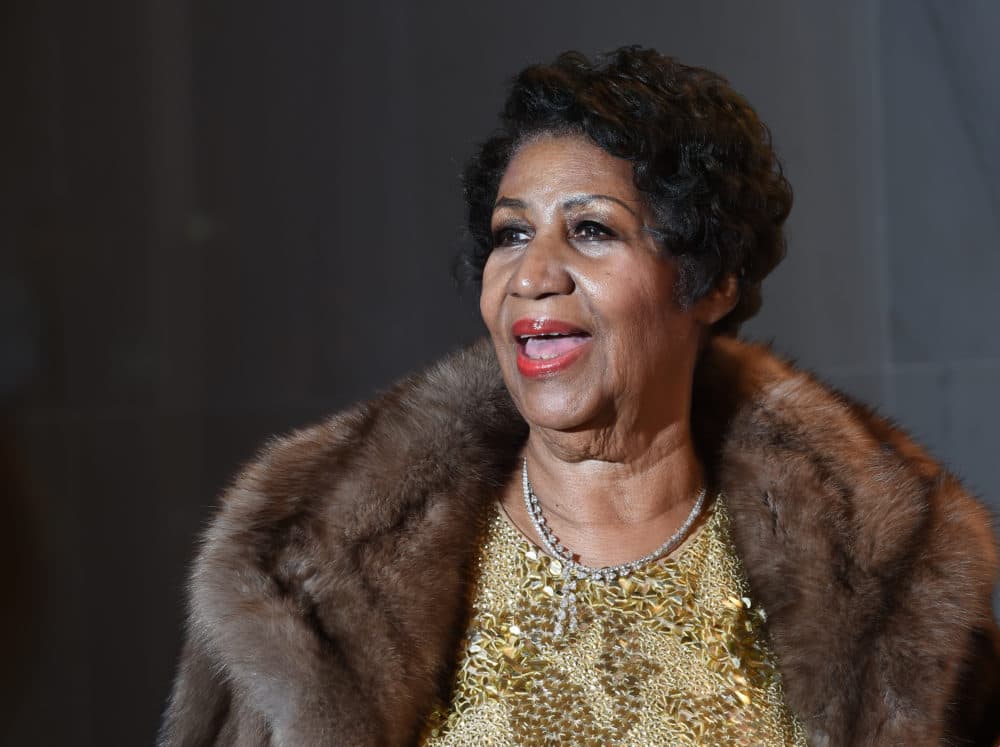Advertisement
The Significance Of Black Women Owning Fur

Do you wear fur? It's been a loaded question for a few decades now.
In a recent piece for The New York Times headlined "A Black Legacy, Wrapped Up in Fur," writer Jasmine Sanders explores the history of black women wearing fur, including the cultural importance of her mother’s minks. She writes, “My mother’s furs are her insistence on public elegance in a world frequently inhospitable to her. It is a point of pride that she wears, and will pass down to me.”
Many black women felt that the cultural disavowal of fur suspiciously coincided with their ability to get it, Sanders tells Here & Now’s Robin Young.
When the People for the Ethical Treatment of Animals’ (PETA) began their campaign shaming women who purchased fur coats, Sanders’ mother told her, “I don't feel like that has anything to do with me. We live on the south side of Chicago. I don't see those people [PETA] here. They don't seem to want to be speaking to me anyway.”
During Sanders’ research on the history of fur, she discovered a quote from Paula Marie Sanders that resonated with how her mother felt: “As soon as black women could afford to buy mink coats, white society and white women said fur was all wrong, verboten, passé.”
“I remember thinking about the kind of cultural disconnect between what mainstream culture is doing versus what women like my mother and like black women in general are doing in fashion and style,” Sanders says.
She adds that young black women wearing their furs today is an act of “defiance.” She recalls rapper Cardi B showing up to a court appearance in January sporting a head-to-toe fur outfit.
“I think that most black people, especially black celebrities, are aware of the current climate and the power that PETA may hold,” she says. “I think that choosing to go out publicly in furs definitely [makes] a potent statement regarding what you're not willing to give up in the ways that you won’t allow yourself to be redirected or to be limited by the whims of mainstream fashion.”

Interview Highlights
On fur coats being an investment for her mother
“My grandmother died when I was pretty young and I'd never seen her in a fur coat. But I remember my mother telling me, you know, we would go down South and those family members had houses and we never had a house. But my mother had other things. She had fur. And that was something that my mother said that really stuck with me, the importance that the coat came to hold.
“My mother's first coat was a mink. She and my aunts would say, ‘When you're over 35, as a woman, you have to have a mink.’ It's like a really elegant status item when you're older. So when she was in her 40s, she bought her mink and she got it for herself from a furrier in Chicago that's really well known, called Andriana Furs. And then her second fur coat, which is a fox fur, was a gift from her husband just a few years ago.
“I think in a lot of ways, it was a celebration of her sobriety, and also being a woman who was in her 40s and single and kind of feeling good about herself, so she wanted to purchase a big item.”
Advertisement

On PETA and cultural shifts on fur coats
“I don't know if it's directly connected, but I do think it's indicative of the mainstream animal rights movement not knowing how to engage black people and it feels like black people, especially black women, are [a] huge blind spot and they seem to not understand it.”
On Aretha Franklin’s fur collection
“Aretha Franklin, basically for her entire career, was a noted fur collector. The president of PETA at the time wrote her this really nasty letter, where he insulted her size, he told her she looked like a clown, her fur coats made her look old. An unimaginable letter to Aretha Franklin. And she never officially responded. I guess her response was in her continuing to wear fur coats.”

On researching the history of fur to figure out for herself how she feels about the issue
“I spoke to a PETA spokesperson and he began the interview with asking, you know, ‘Jasmine, how do you feel about fur?’ And I explained to him that I was kind of fur ambiguous, like I can't imagine purchasing one, but I'm so rapt by the image of my mother wearing her furs and other black women wearing their furs. And I have a number of pictures on the internet of myself in my mother's fur coat, which he mentioned. Like, ‘We've seen the pictures online of you in fur. So we were just wondering your feelings about it.’ But obviously, I recognize the importance of conservation and veganism and being mindful of consumption and the things that we are consuming, so I would say I am fur ambiguous.
“[In an interview], my mother asked me, ‘Do [you] want a fur?’ and I was kind of unsure. You know, I don't know that I would be able to wear it. But again, it's just an image that I'm really enamored with and that I'm really charmed by. … I mean, I consider myself attempting to be at least a mindful consumer. So I feel like there should be room for people who kind of aren't so sure.
“PETA, a lot of the times, will advocate for people to donate their fur coats if they are newly vegan to homeless shelters where they'll make fur blankets out of them, which is a nice gesture but it doesn't mean that the animal didn't die for it already. There’s kind of no unskinning the animal or the mink.”
On modern women’s fashion
“I think part of what's lost with like modern documentation of street style is women like that are lost. Black women you see going to church or going wherever they're going in the wintertime with their big fur coats on like my mom, it's kind of an image you don't see in publications anymore but you're familiar with it and you see it when you walk down the street. I live next door to a church now and I love seeing so many black women to come to church in their mink. So I do think it's a totem of like black urban life.”
On the response to her New York Times article
“It's been overwhelmingly positive, which shocked me a little bit. People are saying that it's something that they've always felt and always thought about, that they had this image in their mind or this image that they were familiar with which was a black woman and a mink.”
On PETA’s campaign that juxtaposed a picture of a black civil rights protester being beaten at a lunch counter with images of a seal being bludgeoned
“It is incredibly insulting. There's also, if you are a black person, you know that your body and your persona are often compared to animals and often considered animalistic and of no more value than an animal.”
On taking her mom’s fur in the future
“I’ve concluded that I will. I won't buy one but I'll definitely take them.”
Marcelle Hutchins produced this interview and edited it for broadcast with Todd Mundt. Serena McMahon adapted it for the web.
This segment aired on March 4, 2019.
